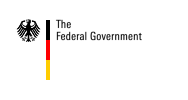The background
"Health is key to prosperity" was the theme running through the G8 Summit in Okinawa in 2000, which marked the first time in the history of the G8 that it had put the fight against HIV / AIDS, tuberculosis and malaria high on its agenda. Since then, health, the fight against highly infectious diseases such as HIV / AIDS, TB and malaria and the strengthening of health systems have become regular topics on the international agenda, including the G8 agenda.
It was at the 2003 G8 Summit in Evian that the first G8 Action Plan on health was adopted. Its aim was to improve the policies and methods of international cooperation on fighting disease in order to achieve the Millennium Development Goals by 2015.
In 2004, the G8 acknowledged the urgent need for an effective HIV/AIDS vaccine and gave its backing to the establishment of the Global HIV Vaccine Enterprise.
A milestone was reached in 2005 when, at their Summit in Gleneagles, the G8 adopted the goal of providing as close as possible to universal access to HIV / AIDS treatment available for all those who needed it.
At last year's Summit in St. Petersburg, the G8 countries issued a special statement on the Fight Against Infectious Diseases.
This declaration also included the decision on the part of the G8 to produce a regular review of the measures they have taken to fight the three pandemics of HIV / AIDS, tuberculosis and malaria.
First health review published during Germany's Presidency
This year, during Germany's G8 Presidency, the review is being produced for the first time. It provides transparency on the specific actions the G8 are taking to deliver on the promises made over recent years.
Contents
The review is made up of two main parts. The more general part starts with a brief introduction and then goes on to look at the commitments made by the G8 in the following fields:
- HIV/AIDS
- tuberculosis
- malaria
- strengthening of health systems
- research and development
- financing.
Each chapter begins by listing the G8's main commitments in the area in question and providing a summary of the status quo, with facts, figures and trends. That is followed by information on what the relevant international organisations, such as the WHO or UNAIDS, are doing and how the G8 are supporting or complementing their efforts. Finally, each chapter contains a few paragraphs on the specific contributions being made by the G8 countries, including financial contributions, in terms of fighting the individual diseases and strengthening health systems.
The chapter on financing mainly gives an insight into how the G8 countries' contributions to the Global Fund have developed over time. It also provides information on any financial contributions that have not been mentioned in the previous chapters and on particularly important health initiatives.
The second part, the Annex, provides some examples of the relevant contributions made by the G8 to international organisations, initiatives and partnerships, namely the Joint United Nations Programme on HIV / AIDS (UNAIDS), the United Nations Population Fund (UNFPA), the GAVI Alliance, the International Finance Facility for Immunisation (IFFIm), UNITAID, Advance Markets Commitments (AMCs) and the Global Fund (GFATM).
